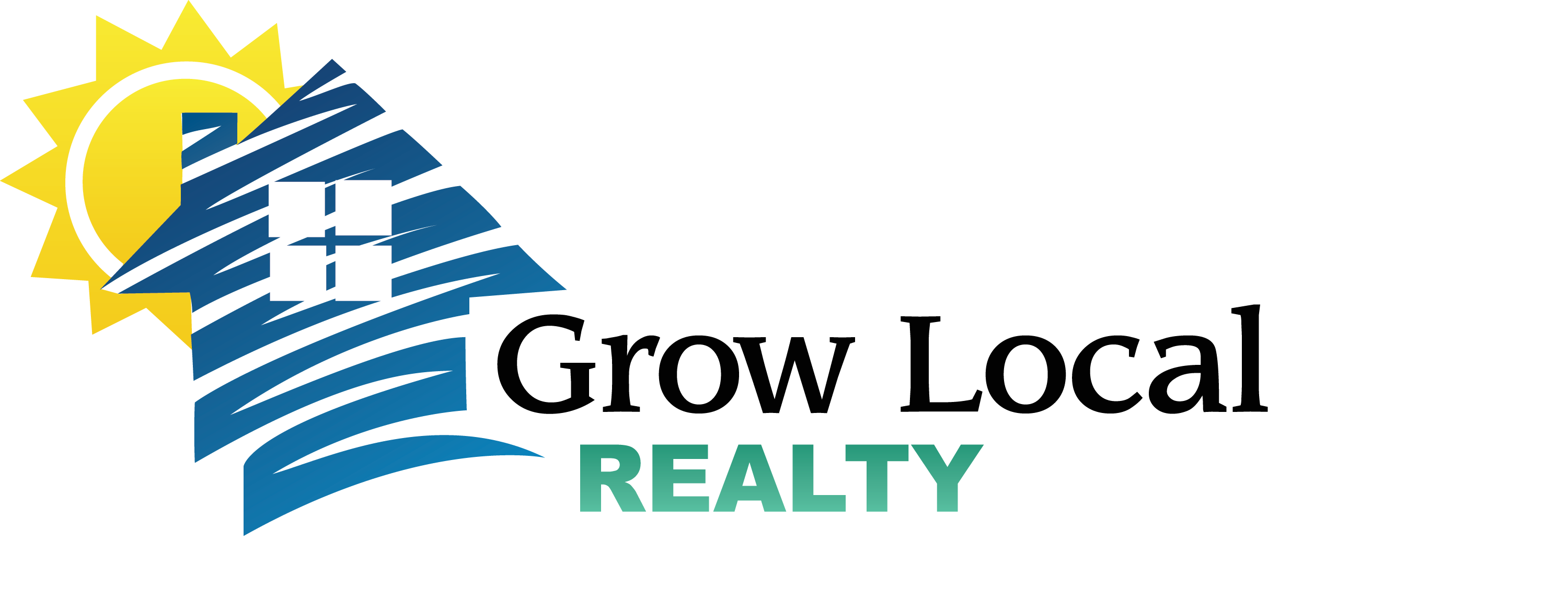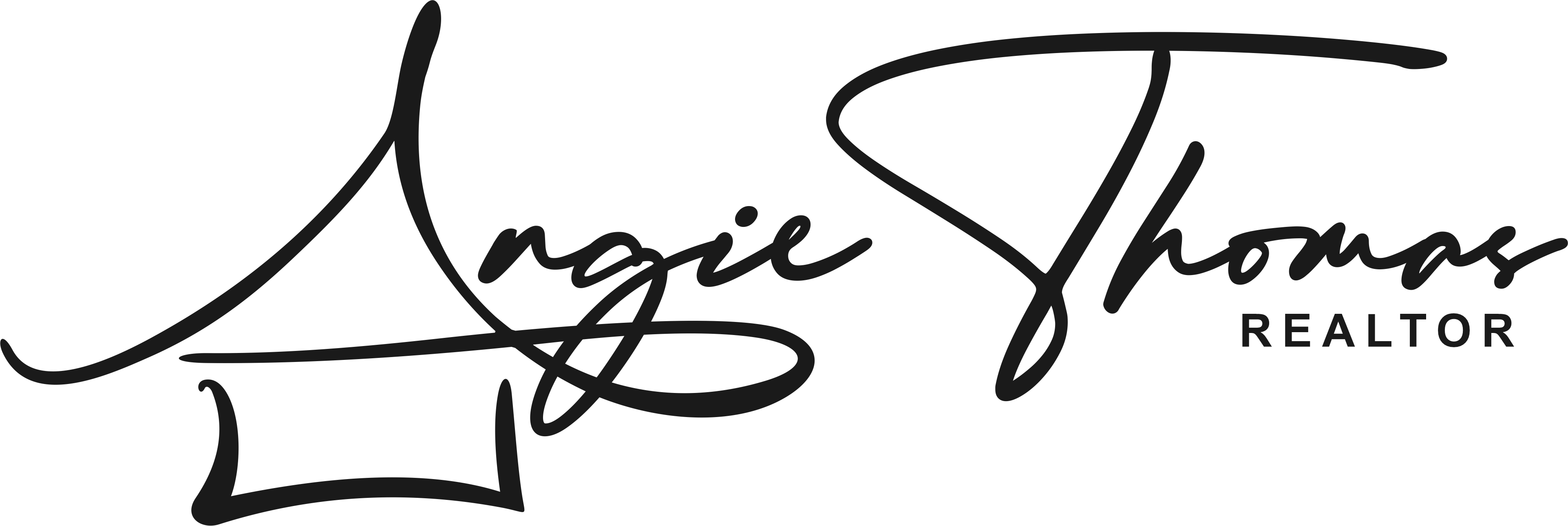Let's Find Home
When it comes to finding your dream home, we will never settle for good enough.
When it comes to
choosing your agent,
you shouldn't either.

The Home Buying Process at a Glance
1. Finances
Obtain a financial pre-approval (proof of funds for cash purchase).
Prepare for additional cost.


2. Buyer Consultation
We'll meet to go over your home search and determine what you want and set clear expectations.
3. Search
Preview potential properties online.
Schedule showings and view the properties you are most interested in.


4. Offer & Negotiations
Write an offer to purchase your favorite property.
Negotiate the terms of the offer.
Accept the contract.
Deposit Escrow and Due Diligence (deliver, mail or wire) within 3 days.
Complete Loan Application within 5 days.
Obtain Homeowners Insurance quotes
4. Inspection & Due Diligence Period
Conduct Inspections.
Resolve/Negotiate Any Issues from Inspection.


5. Financing Period
Your lender will order the appraisal.
Complete misc items the lender needs.
Obtain Homeowners Insurance.
6. Prepare to Close
Attorney will conduct a title search and order survey.
Receive closing statement/clear to close.
Wire funds to the closing company.
Conduct a final walk-through of the property and close.
Closing day: Get your keys, it's all yours!


What to Expect When Buying a Home
What to Expect When Buying a Home in
North Carolina?
Are you considering buying a home in the beautiful state of North Carolina? Congratulations on taking the exciting step towards homeownership! Whether you're a first-time buyer or an experienced investor, understanding the home buying process is essential for a smooth and successful experience. In this article, we'll guide you through what to expect when buying a home in North Carolina, ensuring you're well-prepared for this significant milestone.
Introduction: The Exciting Journey of Buying a Home in North Carolina
North Carolina offers a unique blend of stunning landscapes, vibrant cities, and a welcoming community. From the breathtaking Appalachian Mountains to the picturesque coastal areas, the state has something for everyone. Whether you're drawn to the cultural and economic hub of Charlotte, the lively music scene of Asheville, or the charming coastal towns, North Carolina's diverse regions offer a wide range of options for homebuyers.

Step 1: Qualifying for a Home Purchase
Before diving into the home buying process, it's important to assess your financial readiness and determine your qualification for a home purchase.
Understanding Mortgage Options and Pre-approval Process
When it comes to financing your home purchase, understanding the different mortgage options available is crucial. In North Carolina, buyers can choose from conventional loans, FHA loans, VA loans, and USDA loans, each with its own requirements and benefits. Working with a reputable lender will help you navigate through the pre-approval process, where you provide the necessary financial documentation to determine your borrowing capacity. Obtaining a pre-approval letter not only strengthens your position as a serious buyer but also gives you a clear idea of your budget and helps streamline the home search process.
Calculating Affordability: Payment, Interest, Taxes, and Insurance
Calculating affordability is an essential step to ensure you can comfortably manage the financial aspects of homeownership. Take into account not only the monthly mortgage payment but also the associated costs such as interest rates, property taxes, and insurance. Online mortgage calculators and discussions with your lender will provide insights into the costs associated with homeownership in North Carolina. It's important to have a comprehensive understanding of your financial commitment to make an informed decision.
Step 2: Exploring Neighborhoods and Schools
When buying a home, location matters. North Carolina offers a diverse range of neighborhoods and communities to suit various preferences.
Researching Different Areas in North Carolina
Take the time to research and explore the different areas of North Carolina to find the perfect fit for your lifestyle and needs. From urban areas with bustling city life to quiet suburban neighborhoods and scenic rural communities, each region has its own unique charm. Consider factors such as proximity to employment opportunities, access to amenities, transportation options, and community features that align with your preferences.
Evaluating School Districts and Amenities
If you have children or are planning to start a family, evaluating school districts is a crucial consideration. North Carolina offers a range of public, private, and charter schools, each with its own educational programs and performance metrics. Research reliable sources for school ratings, consider visiting potential schools, and consult with local residents to gather insights. Additionally, assess other amenities that matter to you, such as proximity to parks, recreational facilities, shopping centers, and healthcare services.
Step 3: House Hunting Tips and Tricks
Now comes the exciting part—finding your dream home! Here are some essential tips and tricks to make your house hunting journey a success.
Setting Priorities and Preferences
Before you begin your search, it's essential to establish your priorities and preferences. Create a list of must-haves and nice-to-haves for your future home, considering factors such as the number of bedrooms and bathrooms, square footage, layout, yard size, and any specific features or amenities that are important to you. Having a clear understanding of your priorities will help narrow down your search and save time.
Working with a Knowledgeable Real Estate Agent
Partnering with a knowledgeable and experienced real estate agent specializing in the North Carolina market can be a game-changer. An agent will provide you with valuable insights into the local real estate market, guide you through the entire process, and represent your best interests. They can assist in finding suitable properties, scheduling showings, and providing expert advice on negotiations and contract terms.
Step 4: Making an Offer and Negotiating
Found the perfect home? It's time to make an offer and negotiate the terms. This step requires careful consideration and strategic planning.
Crafting a Competitive Offer
To increase your chances of securing the home, you'll want to craft a competitive offer that stands out among other potential buyers. Your real estate agent can provide guidance on determining an appropriate offer price based on market conditions, comparable sales, and the condition of the property. Consider including contingencies, such as a home inspection and appraisal, to protect your interests during the process.
Effective Negotiation Strategies
Negotiation is a crucial aspect of the home buying process. Your agent will help you develop effective negotiation strategies to navigate counteroffers and arrive at mutually beneficial terms with the seller. Their expertise and market knowledge can be invaluable in achieving a favorable outcome. Remember to stay flexible but also advocate for your needs and priorities during negotiations.
Step 5: Escrow, Inspections, and Appraisals
Once your offer is accepted, the transaction moves into the critical phase of escrow, inspections, and appraisals.
Opening Escrow and Deposits
Escrow is a neutral third-party account that holds funds during the transaction. You will typically provide an earnest money deposit as a sign of good faith, which is held in escrow until the closing. Your agent will guide you through the process of opening escrow and ensuring the necessary documents and funds are properly submitted.
Scheduling Inspections and Appraisals
During this stage, it's important to conduct thorough inspections to assess the condition of the property. Inspections may include a general home inspection, termite inspection, and other specialized inspections depending on the property's features. Simultaneously, an appraisal will be ordered to determine the fair market value of the home. Your agent will coordinate these processes and help you interpret the results to make informed decisions.
Step 6: Managing Contractual Deadlines
A successful home purchase relies on careful management of contractual deadlines and ensuring all parties involved fulfill their obligations.
Staying Diligent to Protect Your Deposit
Throughout the transaction, it's crucial to stay on top of contractual deadlines to protect your earnest money deposit. Adhering to timelines for inspections, repairs, and other contingencies will help safeguard your funds. Your agent will keep you informed of critical dates and ensure all necessary steps are taken in a timely manner.
Communicating with All Parties Involved
Clear and effective communication is key to a smooth closing process. Your agent will act as a liaison between you, the seller, lenders, and other professionals involved in the transaction. Regular updates and timely responses to requests will help maintain transparency and ensure a seamless experience.
Step 7: Closing the Deal and Receiving the Keys
Congratulations, you're almost there! The final step involves completing the transaction, signing the necessary documents, and receiving the keys to your new home.
Finalizing the Transaction
The closing process typically takes place at a title company or attorney's office. You will review and sign various documents, including the settlement statement, loan documents, and any additional paperwork required. Your lender and agent will work together to ensure all necessary funds are transferred, and the title is properly transferred to your name. Once all the paperwork is finalized, the keys to your new home will be handed over to you, marking the culmination of your home buying journey.
Celebrating Your New Homeownership
Take a moment to celebrate your achievement and embrace the joy of homeownership in North Carolina. Settle into your new home, personalize the space to reflect your style, and start creating lasting memories. Explore the local community, meet your neighbors, and discover the amenities and attractions that make North Carolina such a wonderful place to live.
Conclusion: Your Journey to Homeownership in North Carolina
Congratulations on embarking on the exciting journey of buying a home in North Carolina! By following these steps and working with a knowledgeable real estate agent, you can navigate the process with confidence and make informed decisions along the way. From qualifying for a mortgage to exploring neighborhoods, making offers, and finally closing the deal, each stage brings you closer to achieving your dream of homeownership in the Tar Heel State. Embrace the experience, enjoy the process, and soon enough, you'll be settling into your new home sweet home.
FAQs
Q: How long does it take to complete the home buying process in North Carolina?
A: The timeline can vary, but on average, it takes around 30 to 45 days from offer acceptance to closing. Factors such as the complexity of the transaction, financing, and negotiation can influence the duration.
Q: Can I buy a home in North Carolina with a low credit score?
A: While a higher credit score improves your options, there are loan programs available for buyers with lower credit scores. It's best to consult with a reputable lender to explore your options and discuss strategies for improving your creditworthiness.
Q: Are there any specific down payment assistance programs available in North Carolina?
A: Yes, North Carolina offers various down payment assistance programs for eligible homebuyers. These programs provide financial support and incentives to help with down payment and closing costs. Research and consult with a knowledgeable real estate professional or lender to explore these programs and determine if you qualify.
Q: What should I do if I encounter issues during the home inspection process?
A: Home inspections can uncover issues that may need attention. If significant problems are discovered, you can negotiate with the seller to address them through repairs, concessions, or a price adjustment. Your real estate agent will guide you through this process and help you determine the best course of action.
Q: Do I need to hire an attorney for the closing process in North Carolina?
A: In North Carolina, it is common to have an attorney involved in the closing process to ensure that all legal requirements are met. While it's not mandatory, having an attorney's guidance can provide additional peace of mind and ensure a smooth and legally compliant closing.
Q: What are the closing costs involved in buying a home in North Carolina?
A: Closing costs in North Carolina typically range from 2% to 5% of the home's purchase price. These costs include fees for services such as appraisals, inspections, title search, title insurance, lender fees, and recording fees. Your lender and closing attorney will provide you with a detailed breakdown of the specific closing costs associated with your transaction.
Q: Can I qualify for down payment assistance programs as a first-time homebuyer in North Carolina?
A: Yes, North Carolina offers various down payment assistance programs specifically designed for first-time homebuyers. These programs provide financial assistance, grants, or low-interest loans to help with down payment and closing costs. Research and consult with local housing agencies or your real estate agent to explore these programs and determine if you meet the eligibility criteria.
Q: Are there any special considerations for purchasing a historic home in North Carolina?
A: If you're interested in buying a historic home, it's important to be aware of additional considerations. North Carolina has specific guidelines and regulations for the preservation of historic properties. These guidelines may impact the types of modifications or renovations you can make to the property. It's advisable to consult with local historic preservation authorities or experts who can guide you through the process.
Q: Are there any state-specific laws or regulations that I should be aware of when buying a home in North Carolina?
A: Yes, there are specific laws and regulations governing real estate transactions in North Carolina. For example, the state follows a "buyer beware" principle, meaning buyers should conduct their due diligence and inspections to uncover any property defects. Additionally, North Carolina requires a residential property disclosure statement, where sellers must disclose known material defects. It's crucial to work with a knowledgeable real estate agent and potentially consult with an attorney to ensure compliance with all applicable laws and regulations.
Q: How can I protect my investment as a homebuyer in North Carolina?
A: To protect your investment, consider purchasing homeowner's insurance to safeguard your property against unforeseen events. Additionally, properly maintaining your home through regular repairs and maintenance will help preserve its value. Finally, staying informed about the local real estate market trends and making informed decisions with the guidance of your real estate agent will contribute to protecting your investment in the long term.
Work With Us
We pride ourselves on delivering an amazing service to our customers.
Strategic Marketing, Clear Communication, and Experience have consistently placed us among the top professionals in the real estate industry.
Utilizing the latest technologies and marketing strategies, we are raising
the bar in the industry.



